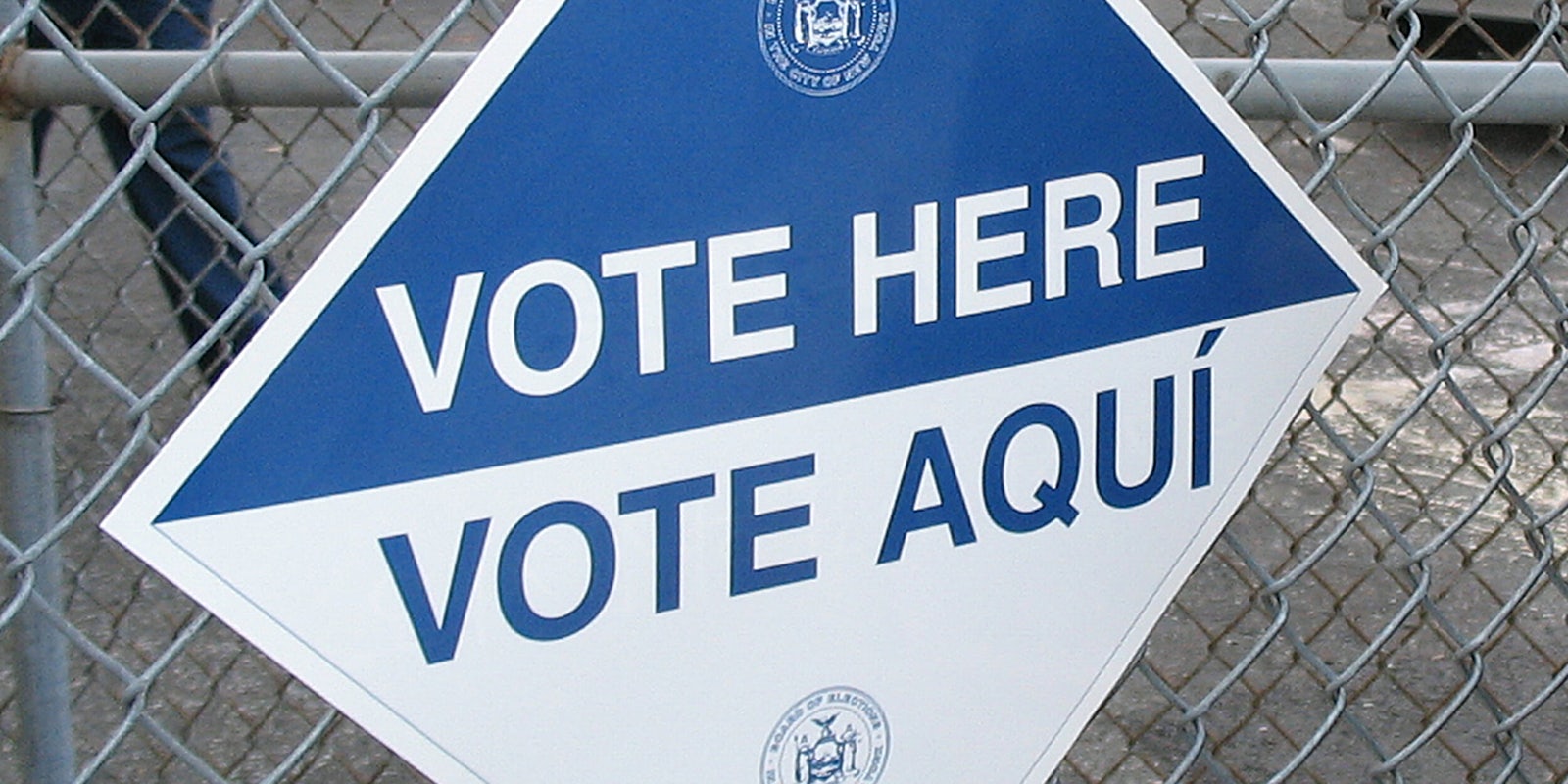On the morning of Election Day, the top trending search on Google is “dónde votar,” signaling a possible surge of Latinx voters to the polls this year.
Since President Donald Trump took office two years ago, the administration’s anti-immigrant messaging and policies—many demonizing people from Spanish-speaking countries south of the border—have grown in intensity. The rhetoric during Trump’s campaign was enough to make people anxious, as he frequently demanded and promised a border wall, and said of immigrants from Mexico, “They’re bringing drugs. They’re bringing crime. They’re rapists. And some, I assume, are good people.”
Such racist dog-whistling has since been translated into anti-immigration policies, the most violent being the so-called “zero-tolerance” policy this spring, in which every person attempting to cross the southern border was detained, including children, who were separated from their parents. The latest plan from the Trump administration is to hold those children indefinitely, as a means to deter illegal immigration.
In the weeks leading up to the election, Trump has dialed up his anti-immigrant rhetoric, targeting the so-called “migrant caravan” that has been slowly working its way through Mexico. In what many called a xenophobic political stunt, Trump has sent 5,000 troops to confront the roughly 3,500 migrants who have a legal right to seek asylum.
Latinx voters appear to be ready to rise up in electoral response to these anti-immigrant actions. NBC reported that Google searches for “dónde votar,” “where to vote” in Spanish, are up 3,350 percent, making it the top trending search this morning. That’s not the only search term related to voting that’s trending either. “Polling place” is also up 350 percent, “voting” is up 300 percent, and “election day” is up 300 percent.
There have also been reports of a dramatic increase in early voting this year, with more than 36 million people casting their ballots prior to Election Day. This, in combination with the apparent surge of Latinx people looking to cast their vote and have their voices heard, may foretell a change in the power dynamics in D.C.


